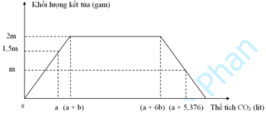Read the following passage and mark the letter A, B, C, or D on your answer sheet to indicate the correct answer to each of the questions from 28 to 35.
WWF, in full World Wide Fund for Nature, international organization committed to conservation of the environment. In North America, it is called the World Wildlife Fund.
In 1960, a group of British naturalists - most notably biologist Sir Julian Huxley, artist and conservationist Peter Scott, and ornithologists Guy Montfort and Max Nicholson - led an effort to establish an organization that protected endangered species and their habitats. The following year the World Wildlife Fund was founded; the international name was subsequently changed to World Wide Fund for Nature in 1989, although in the United States and Canada it retained the founding name. The organization's distinctive panda logo was created by Scott. In the face of growing environmental threats over the ensuing years, the WWF's activities expanded in scope. Today its mission statement is threefold: to conserve the world's biological diversity, to ensure that the use of renewable natural resources is sustainable, and to promote the reduction of pollution and of wasteful consumption. The organization has long included both conservationists and businesspeople with the intention of combining solid scientific data with well-managed action. It also seeks cooperation between nongovernmental organizations, local governments, and local populations. The WWF works closely with the World Conservation Union and has formed partnerships with the United Nations, the World Bank, and the European Union.
The WWF provides money for conservation initiatives around the world. These include programs focused on individual species, forests, and freshwater and marine issues as well as climate change and responsible international trade. The group has also been involved in efforts to provide a safe and sustainable habitat for the world's peoples, both urban and rural, including clean water, clean air, healthful food, and rewarding recreation areas. Among the WWF's notable achievements is its use of debt-for-nature swaps, in which an organization buys some of a country's foreign debt at a discount, converts the money to local currency, and then uses it to finance conservation efforts. The WWF's first successful debt-for-nature swap took place in 1987 in Ecuador.
At the beginning of the 21st century, the WWF was active in more than 100 countries and had more than five million supporters. The organization's international headquarters are in Gland, Switz., and it has more than 90 offices around the world.
The phrase "focused on" in paragraph 2 could best be replaced by ________.
A. concentrated on
B. depended on
C. relied on
D. based on







